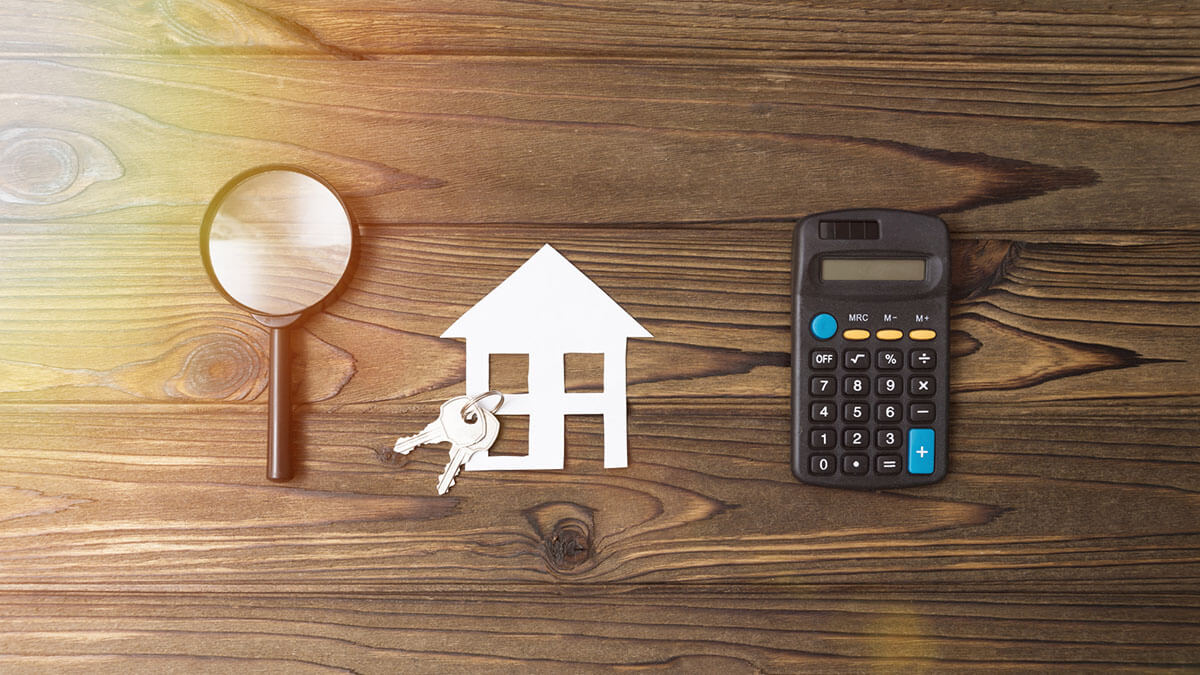Despite a cooling real estate market, home prices are still much higher than they were last year, this time. Increasing mortgage interest rates are adding uncertainty to the mix and reducing buyer demand, too.
If you’re trying to sell your home fast in these unpredictable times, you might consider dropping the price to attract more interest.
How do you know how far is too far when you go this route, though? Would a home inspection help you decide, or is a home appraisal best to find the ideal price?
Keep reading to explore the mysteries of home appraisal vs. inspection.
Discover your home’s worth online for free in minutes!
What Is a Home Appraisal?
You can’t figure out the difference between appraisal and inspection until you know what each of these services entails. So, let’s get started by defining what a home appraisal is and what it isn’t.
Most lenders require a home appraisal as part of the mortgage origination process. It involves a professional estimation of a home’s value based on a physical inspection by a qualified individual and a comparison with similar home sales in the area.
The appraisal process lasts between thirty minutes and an hour, but it can take up to two weeks before the appraiser supplies their report regarding the value of the home.
Lenders won’t give a buyer more money than they need to buy the home they want. They may even deny the mortgage application if the appraised value is lower than expected.
That’s because they need to know that they can get their money back if the borrower defaults on the loan.
If the prospective buyer can’t get the mortgage they want, this can cause the sale to fall through, or delay the process while the buyer approaches another lender.
The buyer pays for the home appraisal, which can cost anything from $250 to $800 depending on the home’s size and the expertise of the appraiser.
When Does a Buyer Need a Home Appraisal?
While almost every lender requires a home appraisal, there are few legal requirements governing these instances. In most cases, a buyer will need to get an appraisal when:
- Buying a home with a loan
- Refinancing an existing loan
- Transferring a home as a gift between family members
Some home sellers opt for an appraisal to help them establish a value for their home before listing it. In these cases, the seller pays for the appraisal. There’s a good chance the buyer will need to arrange a second appraisal when applying for their mortgage.
Realtor.com suggests that arranging a pre-appraisal isn’t in the best interest of the seller.
When Is an Appraisal Unnecessary?
There are some instances where the buyer may forego an appraisal if desired. These are:
- All-Cash Purchases
- Where the home has an appraisal younger than 120 days
- Refinancing with loans backed by the USDA, FHA, or VA
An appraisal waiver allows eligible borrowers to skip the appraisal process during the loan-approval process. There are strict eligibility requirements for these waivers.
What’s Included in a Home Appraisal?
An appraiser looks at things that affect the value of the home. These include the following:Comparable Homes
When appraising a home, appraisers analyze recent sales of similar homes in the area to determine what buyers are willing to pay in the neighborhood. Looking at similar homes helps them determine a starting point for valuing the home.
The Property
Once they have a starting point, the appraiser will consider the physical features of the home and adjust the price accordingly. These aspects include the size of the house and yard, the number of bathrooms and bedrooms, the home’s age, the view, and the overall location of local amenities.
Permanent features like an irrigation system or a granny flat can add to the value of the home, while semi-permanent ones like sheds and above-ground pools don’t.Structural Aspects
The structural aspects of the home and its general condition have an impact on its value.
The condition of the roof, siding, and foundation are of primary concern. The appraiser will look for code compliance, damages, cracks, and leaks that can lead to major repair bills for the buyer.
High-quality materials used to construct the home add to its value.Home Interiors
The appraiser looks at items that would stay behind when the buyer moves and includes these things in their estimation. These include floors, walls, appliances, doors, light fixtures, major appliances, and plumbing.
Remodeled and upgraded areas increase the value of the home.Floor Plan
An awkward floor plan can detract from the value of the home. Rooms with awkward shapes and segmentations aren’t popular among buyers, and old-fashioned layouts can also devalue a house.
Some appraisers may compare the layout of the home with those of previously sold homes in the area, too. Relevant Permits
Appraisers peruse public records when evaluating homes. If they notice any additions or upgrades, they may inquire whether the owner has permits for the work.
A lack of the necessary paperwork could negatively impact the value of the home and some municipalities may issue fines or force the homeowner to undo the improvements.
What Are the Benefits of a Home Appraisal?
The obvious benefit of an appraisal is that the buyer won’t end up paying an escalated price for the home they want or pay escalated property taxes in the future.
They might reveal flaws in the home that the buyer isn’t aware of, like a comparatively small floor plan or less-than-ideal location.
An appraisal can also help a seller prove the value of their house when rejecting a lowball offer.
So, while there are a few inspection elements that occur during an appraisal, you’ll still find many differences when comparing a home inspection vs an appraisal.
How Should You Prepare for an Appraisal?
An appraiser will see through any efforts to dazzle them with a last-minute overhaul of your home. Yet, there are a few things you should do before they arrive.
These include:
- Tidy up your interiors and your yard
- Make sure they can access all the rooms in your home
- Provide a list of upgrades and comparables (if you have them)
Your real estate agent can compile a list of house comps for you if desired.
What Is a Home Inspection?
How the physical properties of a home determine its value may lead both buyers and sellers to ask, “Is an appraisal the same as an inspection?”. The answer is a resounding, “No!”
While most lenders don’t require a home inspection, buyers often want to know what they’re getting into before they agree to buy a home.
In most cases, they’ll include a home inspection contingency in their purchase agreement. That means, the buyer can back out of the deal or negotiate costs based on the findings of a qualified home inspector.
In this way, a home inspection report can seriously hamper the sale of your home, especially if you’re trying to sell your home as-is.
What Do Home Inspectors Look For?
Home inspectors conduct a thorough check of almost every aspect of your home. These inspections include the following areas of a home:
- HVAC systems and filters
- Electrical and plumbing system
- Light fixtures
- Utilities
- Major appliances included in the sale
- Smoke detectors or carbon monoxide detectors
- Mold and mildew
- Presence of insects and pests
A home inspection does not include an evaluation of the following aspects:
- The home’s market value
- The location and neighborhood
- Comparable homes in the area
- The home’s size
It usually takes a few hours for the inspector to complete these checks, but the homeowner doesn’t need to stick around while they’re busy.
Once the inspector has examined all the accessible areas of the house, they compile a written report of their findings. They’ll often include pertinent photographs as well as recommendations.
These reports typically include details about how the homeowner has maintained each element, and how much more maintenance is likely.
In some cases, the home inspector will request further inspections by a plumber, electrician, or roofing specialist.
What is a Pre-Listing Home Inspection?
Sometimes a home seller will hire a home inspector before the buyer requests an inspection. This can help them iron out any problems that might impact the sale of their home.
This gives the seller time to decide whether it’s worth fixing these issues before they place their home on the market. These preliminary inspections may also reveal problems the homeowner is unaware of.
Getting your home inspected early can also give you the edge when negotiating with buyers.
A home inspection has many benefits for the buyer, too. It can help give them leverage when negotiating with a seller, help them feel that they’re buying a safe home, and prepare them for any necessary repairs.
For those who’ve opted for new home construction, a home inspection can prove the contractor did a good job.
What Happens if Your Home Fails the Home Inspection?
You can’t fail a home inspection. It’s simply a report concerning the condition of the home.
Most homes will fall short in many areas, but that doesn’t mean they’re unsaleable. The purpose of a home inspection is to give the new owner an idea of likely repairs and how much they can expect to spend on the home after buying it.
Even homes with fire or flood damage can find a new owner. It’s unlikely that a mortgage lender will agree to provide finance for a home in very poor condition, but a fix and flip enthusiast with cash in hand might embrace the challenge.
In most cases, the buyer will attempt to negotiate the price of the home down based on expensive repairs or replacements, like a roof or foundation.
The seller and buyer can also agree to split the costs, or the buyer can opt to pay for the repairs themselves. In the worst-case scenario, the buyer might decide to back out of the sale due to the expenses involved.
Preparing Your Home for an Inspection
It makes sense to take care of niggling issues before the home inspector arrives. You don’t want to end up with unnecessary defects in your report.
Check your home for these issues when you first list it for sale, these small things can put buyers off during an open house event, too. The most important things you can do before your inspection include:
- Repairing any plumbing leaks
- Fixing running toilets.
- Applying caulking sealant to windows and bathroom tile
- Replacing non-functioning light bulbs
- Servicing your HVAC
- Cutting back the foliage around exterior structures
Create a folder containing information about any home improvements as well as service records for major appliances and present it to the home inspector when they arrive.
It’s a good idea to keep your pets out of the way on inspection day and make sure the inspector can easily access any necessary areas.
Appraisal vs. Inspection Summarized
To sum up the differences between appraisal vs. inspection, a home appraisal involves an evaluation of a home’s market value while a home inspection centers on describing the condition of the home.
The outcome of a home appraisal depends on things like the home’s location, condition, size, and comparison with similar properties. Home inspection criteria include its structure, state of disrepair, and safety according to predetermined criteria.
In both cases, the buyer must pay for these time-consuming services, and they have the option to walk away from the deal if the outcome doesn’t suit them.
There is an easier way to find out what price you could get for your home right now. Enter your home address to get an instant offer on your property without having to worry about the time delays inherent in appraisals or inspections.




